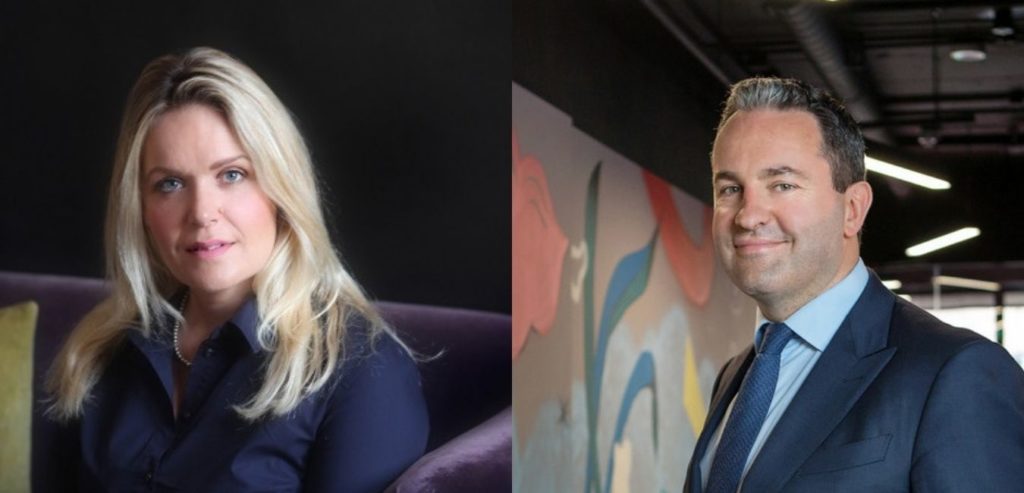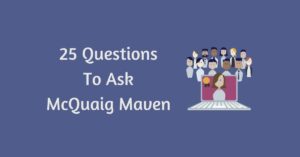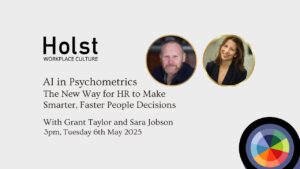Holst MD Jo Emmerson recently spent 30 minutes in conversation with Engage People’s Paul McClatchie. Engage People specialises in the financial sector and uses McQuaig assessments with their clients.
Paul McClatchie, founder of Engage People, recently undertook McQuaig interpreter training with us and as you will hear, is a keen advocate of the benefits of using McQuaig through the entire employee lifecycle.
In the first part of their conversation, Paul and Jo discussed the ‘human experiment’ of the last 12 months. The impact on those who are time poor, with the pressure of childcare and homeschooling, and also those who actually have more time on their hands without travel or commute. Do they fill that with healthy ‘extracurricular’ pursuits, or simply work for longer?
Jo: This has definitely been a human experiment! Our business is largely online and has adapted well. But there are businesses where that shift hasn’t worked so well. We even have differing experiences in our own team. While the ability to set our own daily timetables, walk the dog, etc is welcome, we do miss the social interaction. This is a challenge. Our recent annual kick-off meeting showed how we really do miss each other and it’s a shame that we can’t be face-to-face right now. We really look forward to when we can.
The longer this goes on, the more people will need social interaction in whatever form that can be, and most importantly will need the support of a team around them. If you are in a role where you need to work alongside team members and be creative with ideas, face-to-face interaction is almost always preferable.
However, there are some positives – when I’m at my desk more, I’m more focused with less distraction. And, if you have a role that is largely self-sufficient and works well from home, it makes sense that people would want to do that. My reservation is around the mental wellbeing of those individuals when they are isolated or live alone, isolation can be so damaging. So, it’s a mixed bag.
Paul: Why did Holst choose to partner with McQuaig?
Jo: McQuaig is a quality product. It’s important to believe in what you promote, which I absolutely do. McQuaig helps an individual to understand themselves better. It helps those working with and managing them to understand their character traits better and how that person likes to work, how to get the best out of them and how that helps people work as a team. It becomes easier to identify and to tackle areas of conflict. McQuaig is a very supportive tool and applicable throughout the whole employee lifecycle.
Paul: Some businesses would have been historically resistant to people working from home. How do they adjust successfully?
Jo: Yes, but when you understand your individual profile you can understand what your preferences are. People can be different at work and at home and now this is all amalgamated into one place. For some that is great, they are managing. For other profile types with high sociability, for example Persuaders and Enthusiasts, they need other people to bounce off. We can use the McQuaig Self Development Survey® to help the individual to better understand how they prefer to work, and help the leadership team to understand that too. It’s a really good place to start and opens up the conversation. This is the way for teams to get the social interaction they need but allow also people the space to work from home where appropriate.
Each business and their objectives are different. It’s therefore important that managers communicate well so that people can understand what the business requires. It’s equally important that people working with those managers can explain why they feel their role is working well and really keep the communication channels open.
Paul: We’ve found that sitting down with the individual to go through their McQuaig report instead of jumping in with a conclusion works really well. It allows the individual to see the feedback for themselves and for it to be a progressive conversation. We then check back later to see how they feel about it.
Jo: Giving feedback should always be a two-way thing, helping that individual to see and understand themselves in the profile. McQuaig is so good because it not only explains the personality traits but also what that means for that individual and for the person managing them.
Paul: Is there a particular process for a manager to follow to make sure they are being supportive to their team members?
Jo: Managers have a difficult job. Human beings are not very good at change. In a normal change management programme there would be the opportunity to prepare. No one had the chance to prepare this time and no one expected it to go on this long. With hindsight, we could have expected a two year cycle, in line with other pandemics. Managers have a really difficult job managing this change. We need to help them cope with the demands of the change and to collaborate with their team. Where we’ve seen success is when communication between leaders and teams is the result of an honest and open culture. Where all are able to say how they feel and that they are listened to. One of the best leadership skills is to be a good listener. To then go away to work out why that issue is important to the individual and how you can support it.
Paul: Have you found profiles to be useful when looking at whether someone is suited to remote working and being on their own?
Jo: Yes, the profiles can give you that indication. The obvious trait is that of high sociability, the need to interact with others. Another indicator is the individual’s independence. Those who are more independent tend to be more comfortable in taking on management of their own roles and business objectives, For example, leadership can be a lonely job and managers need to be quite independent. However, it’s important to spot whether someone is coping well with a level of independence that they may not be used to or if they need a bit more support.
On the other hand if you are naturally quite an analytical person you’ll be very good at workflows and very happy as long as the workflows are well constructed. Those people may be more successful at home. For example, it will be just what an online engineer is used to. Conversely, sales people typically need interaction with their clients and it’s hard when everything is online. But even this assessment needs to be taken case-by-case, depending on the role. There are however, definitely aspects that you can draw out from the profiles.
Next time … Paul and Jo go on to discuss how to introduce psychometrics into your existing processes, with both current teams and new hires, and what to use when in the recruitment process.
Contact us
We’re a team who practice what we preach. 2020 was tough, but we made it through with perseverance, motivation and above all by supporting each other. Contact us to find out how we can help you to do the same.
flowprofiler® and associated marks are registered trademarks of Chalmers International Limited | All rights reserved
eqflow® and associated marks are registered trademarks of Chalmers International Limited | All rights reserved
resilienceflow® and associated marks are registered trademarks of Chalmers International Limited | All rights reserved
motivationflow® and associated marks are registered trademarks of Chalmers International Limited | All rights reserved






